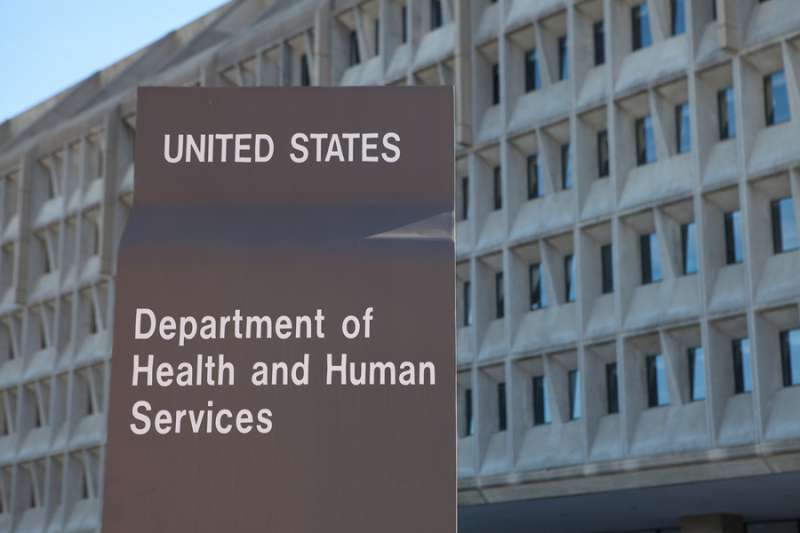The Trump administration announced on Wednesday it will send almost $2 billion in grant funding to the states to fight the opioid crisis.
The administration will disburse $1.8 billion in grant funding to the states through the Department of Health and Human Services (HHS), to fight the addiction epidemic, HHS Secretary Alex Azar said Sept. 4. The funding was appropriated by Congress at the President’s request.
The grants will be awarded in two parts. One part is $932 million in State Opioid Response grants, under the HHS Substance Abuse Mental Health Services (SAMSH) program, for all 50 states and several territories.
Providers receiving the grants “must make available medication-assisted treatment, which is the gold standard of treatment for opioid addiction,” Secretary Azar told reporters on a conference call on Wednesday.
Funding is sent to state health departments, territories, and local health departments; states can use the grant funding in a variety of ways, such as “medication-assisted treatment,” “community-based prevention efforts,” “employment coaching” programs, or distribution of naloxone, which is a drug used to counteract opioid overdoses, Azar said.
An additional $900 in grant funding will be sent to 47 states, Washington, D.C., 16 localities, and two territories, under the Centers for Disease Control’s (CDC) Overdose Data to Action Grant Program. The grant money will fund better data collection on opioid overdoses and help victims get the treatment they need, Anzar said.
“These funds will be delivered to the communities where the help is most needed,” President Trump said on Wednesday at the White House.
The funding comes in response to 70,000 deaths by drug overdose in 2017. Over two-thirds of those deaths involved opioids, according to the Centers for Disease Control (CDC). Opioid-related overdose deaths increased by a factor of six between 1999 and 2017, though last year provisional overdose deaths fell by five percent, Azar told reporters on Wednesday.
Trump also noted indications of a drop in overdose-related deaths in his comments on Wednesday afternoon, saying that in the last two years indicated that deaths were substantially down in Ohio, Pennsylvania, West Virginia, Iowa, Kentucky, and New Hampshire.
“The battle has only just begun,” President Trump said. “We’ll not rest until every American child can grow up free of the menace of drugs, empowered to realize their full and unlimited potential. So many lives are stopped cold by drugs.”
Secretary Azar told EWTN on Wednesday that faith-based organizations would be eligible to receive funding.
“We obviously encourage faith-based organization participation throughout the states” he said regarding the grants.
As an example, he said that the NIH HEALing Communities Initiative would provide around $400 million in funding to four communities in Kentucky, Ohio, Massachusetts, and New York.
The recipients were selected on the criteria of a “whole-of-community approach” to fighting the opioid epidemic “to show that, with the right community efforts, including the faith community, we can tackle this,” Azar said.
However, the states will determine which faith-based organizations receive the grants, senior administration officials said.
The announcement comes just over a week after pharmaceutical giant Johnson & Johnson was ordered by an Oklahoma district court judge to pay $572 million for its role in helping drive the state’s opioid epidemic by using deceptive marketing to push the sale and prescription of painkillers.
There are currently over 2,000 cases being litigated against pharmaceutical companies by state and local governments for their alleged roles in the opioid epidemic. When asked by NPR where the administration thinks damages—such as those ordered to be paid by Johnson & Johnson—should be used in the opioid epidemic, senior administration officials said that the administration does not currently have an opinion on that, as multi-district litigation is ongoing.
Kellyanne Conway, White House Senior Counselor, told reporters that the administration is trying to focus on the threat of fentanyl, which caused 32,000 deaths in the U.S. in 2018.
“The fact that this nation is in such a predicament is because federal policies in our overall healthcare system has failed many Americans who are suffering,” Conway said.

